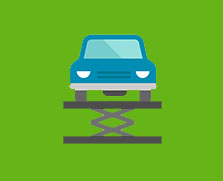I think this is why copper grease works well to prevent metals bonding together.
Further to the recent comments from readers about metals becoming bonded together (principally aluminium alloy wheels and iron hubs). Harking back to my school chemistry lessons, the problem is that any two (different) metals in contact, when water penetrates, form a short-circuited battery cell. The water becomes a weak electrolyte (a solution that conducts electricity) because of impurities in it. The electro-chemical series sets the rule about metals that are eroded in preference to others.
Some of the most commonly used metals appear in this order: magnesium, aluminium, zinc, iron, tin, lead and copper. Metals higher up the list are dissolved in preference to those lower down. So the aluminium in alloy wheels will corrode readily when in contact with almost any other metal. I think that the copper grease (which I have been using for several years myself to prevent my alloys from bonding to the wheel hubs) simply forms an insulating layer (and possibly the fragments of copper help to keep the surfaces separated slightly). The series also explains why tin-plated steel (food cans) soon rusts when the surface is scratched, but galvanized steel (zinc) doesn't. I use aluminium paint as a primer before painting steel - it's very effective.
Very many thanks for that explanation. And thanks for the erosion table. I have been bombarded with theories as to why Copperease cannot work, but, like you, have found that for the past couple of years it has worked very well.
Answered by Honest John on





